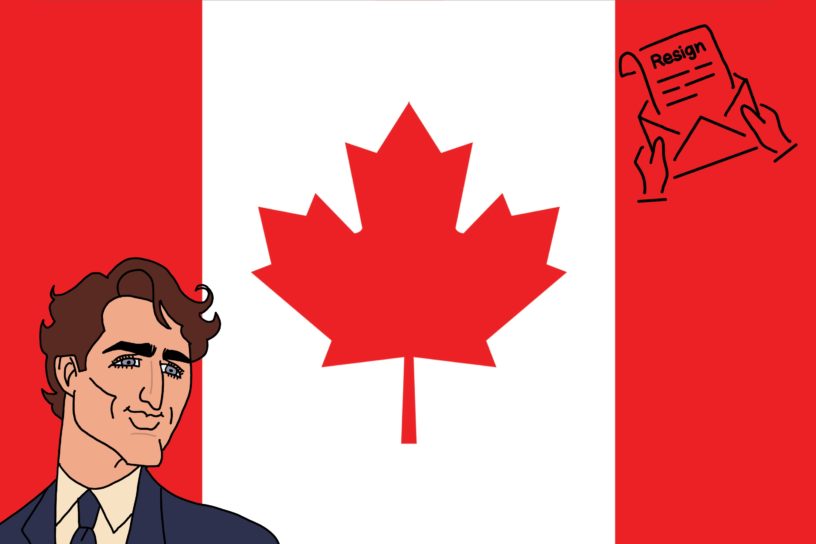By Elliott Meijer
Students at Toronto Metropolitan University (TMU) are chiming in on Canadian Prime Minister Justin Trudeau’s resignation as leader of the Liberal Party of Canada.
Trudeau stood outside his Rideau Cottage residence in Ottawa on Jan. 6 to announce his stepping down, an act that sparked debate and uncertainty among Canadians.
Trudeau’s announcement came just two weeks after Finance Minister Chrystia Freeland resigned from her position in an open letter to the prime minister, posted to social media on Dec. 16, 2024.
In the letter, Freeland claimed that Trudeau and her had found themselves “at odds about the best path forward for Canada,” whilst warning of potential economic threats posed by the incoming Trump administration in the United States.
“[Trudeau] should’ve stepped down about a year ago,” said Diego Rivera, a second-year history student at TMU. “The [most] important figure of his cabinet resigning is a very telling figure as to how weak of a leader he’s become,” Rivera added.
Housing Minister Sean Fraser announced his resignation, a day prior to Freeland, on Dec. 15, 2024, stating that he would not run in the next federal election.
With two major cabinet ministers stepping down within a span of 24 hours, feelings towards Trudeau within the Liberal Party rapidly soured—worsened by record-low approval ratings and a soaring opposition, according to the Angus Ried Institute.
Along with his resignation, the prime minister announced the decision to prorogue Parliament until Mar. 24, granted by Governor General Mary Simon. As a result, no committee will be able to sit for over 60 days—until the next session is summoned.
Any bills put forward prior to prorogation which had not yet received Royal Assent—the adoption by both houses of parliament—are “entirely terminated,” according to the House of Commons.
When that next session is summoned, there will be a new face of the Liberal Party of Canada, who may have to deal with a prompt vote of non-confidence from the country’s five oppositional parties.
Robert Goodman, assistant professor of politics and professional administration at TMU, feels this prorogation comes at an unfortunate time, with Canada “coming under tremendous stress” from United States President Donald Trump’s threatened tariffs.
“We’re entering this time with a lot less clarity and ability to respond than we ought to have…I don’t think this is a great time for Parliament not to be sitting,” said Goodman, who believes the Liberal Party’s “best hope” would be to “provide some sort of distance” from the Trudeau Government moving forward.
“We are in an anti-incumbent, sort of anti-establishment moment, and to the extent that the Liberal Party can accommodate itself to that, that’s probably the best strategic move it can make in this situation,” said Goodman.
First-year performance production student Rose Djamshiat shares a similar perspective, saying, “I’ve heard a lot of different opinions [from] people wanting to still continue voting for the Liberal Party that were originally not going to, purely because it was Trudeau.”
Despite the decision for a new Liberal leader being widely accepted as a step forward for the party, Goodman warns that “unless there’s a radical shift in polling, the Liberal Party is going into opposition, and it needs to take that time to think about what it really stands for and what sets it apart from the opposition.”
According to Abacus Polls, the current front runners to succeed Trudeau are former governor of the Bank of Canada Mark Carney and the aforementioned Freeland, who announced their leadership runs on Jan. 16, and Jan. 17, respectively.
Pierre Poilievre’s Conservative Party of Canada currently holds a sizable lead in all federal polling and has for the better part of the last 18 months.












Leave a Reply